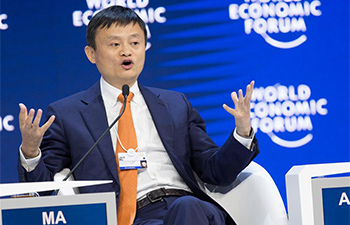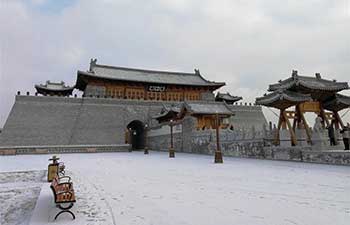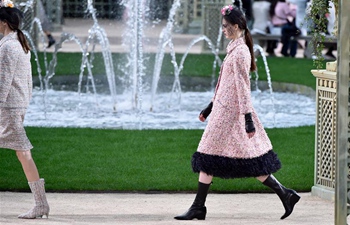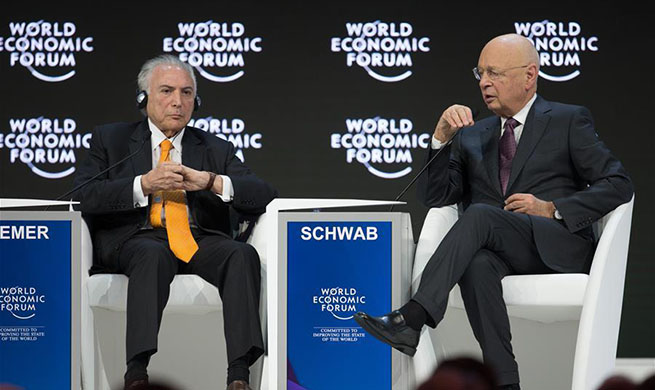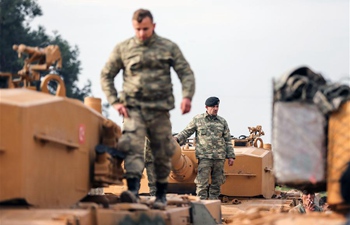LAUSANNE, Switzerland, Jan. 24 (Xinhua) -- The drawing ceremony of the inaugural edition of UEFA Nations League was held at SwissTech Convention Center here on Wednesday, with the European football governing body searching for a solution to reduce the number of "meaningless" international friendlies.
The UEFA Nations League stems from the desire of UEFA and its 55 member associations to improve the quality and standing of national team football.
Back at a 2011 UEFA strategy meeting, the UEFA Nations League was unanimously adopted at the 38th UEFA Congress in Astana on March 27, 2014.
The tournament is set to replace most friendlies with competitive matches, and enable UEFA's 55 member associations to play against evenly matched opponents.
The teams are divided into four leagues based on their UEFA national team coefficient rankings at the end of the group stage in the European Qualifiers for the 2018 FIFA World Cup, and League A consists of the 12 top-ranked teams.
In the most highly-anticipated League A, World Cup holders Germany are placed in Group 1 with France and Netherlands. Belgium, Switzerland and Iceland are slotted into Group 2. European champions Portugal are in Group 3 along with Italy and Poland, while Group 4 includes Spain, England and Croatia.
Following double headers between September and November 2018, four group winners in League A will qualify for the tournament finals to be held in June 2019.
The UEFA Nations League will witness a different lineup at its next edition with promotion and relegation.
UEFA President Aleksander Ceferin expressed his excitement about the new tournament, especially in terms of promotion and relegation, adding that he was happy to see every team has the chance of qualifying for major tournaments.
The most attractive part of the UEFA Nations League, especially for minnows, is that it has been integrated into the qualifying system for European Championships, as one of the bottom 16 teams in the UEFA national team coefficient rankings is now guaranteed a place at the tournament.
"It's a good concept. It's new, so we have to see how it works out, but I think it's good," said Tom Saintfiet, head coach of Malta positioned in League D. "Now matches have been arranged for teams at similar levels, so the concept is quite good and motivates players to improve."
"If you play against a big nation, it's always difficult with more defending, and now we can develop another style of playing. It's good for our development of football, and hopefully for fans so that they can celebrate a few times for their teams," he added.
"For smaller teams, it's an opportunity to grow up and improve," echoed San Marino head coach Franco Varrella. "This new competition can help smaller teams improve and focus on the next European Qualifiers, trying to let people know that it's not so easy to play against San Marino and other smaller teams.
Twenty teams will secure their berths in EURO 2020 finals through qualifiers to be held starting in March 2019, with the remaining four tickets up for grabs for those teams benefitting from the 2018-19 Nations League. Each league will have a play-off path of its own, and winners of each path will qualify for EURO 2020.
If a group winner has already qualified through the European Qualifiers, their spot will go to the next best-ranked team in their league.
Although the UEFA Nations League will undoubtedly result in fewer international friendlies, there will still be space on calendar for friendlies, especially for top teams who may want to play teams from other federations to prepare for major tournaments.




